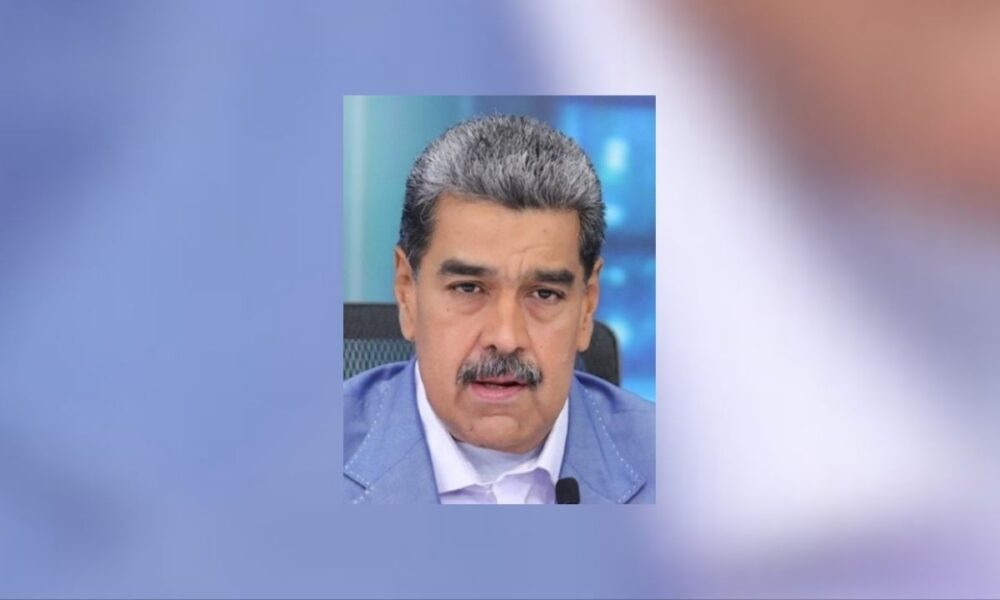The Trump administration has doubled the reward for the capture of Venezuelan President Nicolás Maduro to $50 million, alleging he is among the world’s largest narcotics traffickers.
Attorney General Pam Bondi announced the increase on Thursday in a video posted on X, accusing Maduro of working with criminal organizations such as Tren de Aragua, the Sinaloa Cartel, and the Venezuela-based Cartel de los Soles to traffic cocaine into the United States.
“Maduro uses foreign terrorist organizations to bring deadly drugs and violence into our country,” Bondi said. “Under President Trump’s leadership, Maduro will not escape justice and will be held accountable.” She said the Department of Justice has seized more than $700 million in assets linked to Maduro, including two jets and nine vehicles, and traced nearly 7 tons of seized cocaine directly to him.
Today, @TheJusticeDept and @StateDept are announcing a $50 MILLION REWARD for information leading to the arrest of Nicolás Maduro. pic.twitter.com/D8LNqjS9yk
— Attorney General Pamela Bondi (@AGPamBondi) August 7, 2025
The U.S. first indicted Maduro in Manhattan federal court in 2020, during Trump’s first term, on narco-terrorism and conspiracy charges. A $15 million reward was initially offered for his arrest, which the Biden administration later increased to $25 million in January.
The State Department previously designated Maduro as a leader of the Cartel de los Soles, alleging in official pronouncements that he negotiated multi-ton shipments of cocaine with the Revolutionary Armed Forces of Colombia (FARC) and coordinated with traffickers in other countries. It claims he provided military-grade weapons to the FARC and sought its assistance in training a militia allied with the cartel. Maduro has denied involvement in drug trafficking, telling The Washington Post in 2020 that the allegations “[make] me laugh.”
Venezuelan Foreign Minister Yvan Gil dismissed the latest reward increase as “pathetic” and accused Bondi of orchestrating a “crude political propaganda operation.” In a statement reported by CNN, Gil added, “Her show is a joke, a desperate distraction from her own misery,” and paired the announcement with a yawning emoji.
The U.S. and dozens of other countries have not recognized Maduro as Venezuela’s president since 2019, citing irregularities in the 2018 election and, more recently, his claim to victory in the disputed July 2024 presidential race. The Biden Administration recognized opposition candidate Edmundo González as the winner of that contest.
Secretary of State Marco Rubio on Thursday called Maduro “the head of the vicious Cartel de Los Soles, a narco-terror organization which has taken over Venezuela,” adding, “Maduro MUST be brought to justice.”
Despite the mounting pressure, Maduro remains in power in Caracas.
In July, the Trump administration struck a deal with Maduro to release 10 Americans jailed in Venezuela in exchange for several deported migrants from Venezuela who were being held in El Salvador being sent home. Days later, the White House granted U.S. oil giant Chevron permission to resume operations in Venezuela after sanctions had previously halted drilling.
The U.S. Treasury Department designated the Cartel de los Soles as a specially designated global terrorist organization, alleging it supports foreign terrorist groups threatening U.S. national security. The Biden and Trump administrations have maintained sanctions blocking Venezuela from the U.S. financial system and restricting oil imports, though both administrations have occasionally loosened or tightened the various sanctions.
Maduro became president in 2013 following the death of Hugo Chávez. His tenure has been marked by economic collapse, sanctions, political repression, and a migration crisis that has seen at least 7 million Venezuelans leave the country, according to a January 2024 report from the Congressional Research Service.
The $50 million reward is one of the largest currently offered by the U.S. under its Narcotics Rewards Program (NPR).
“To date, the NRP has helped bring more than 75 foreign major violators of U.S. narcotics laws to justice, and the Department of State has paid over $135 million in rewards to individuals who came forward with information leading to the arrest and/or conviction of these criminals,” the Department of State website says.

